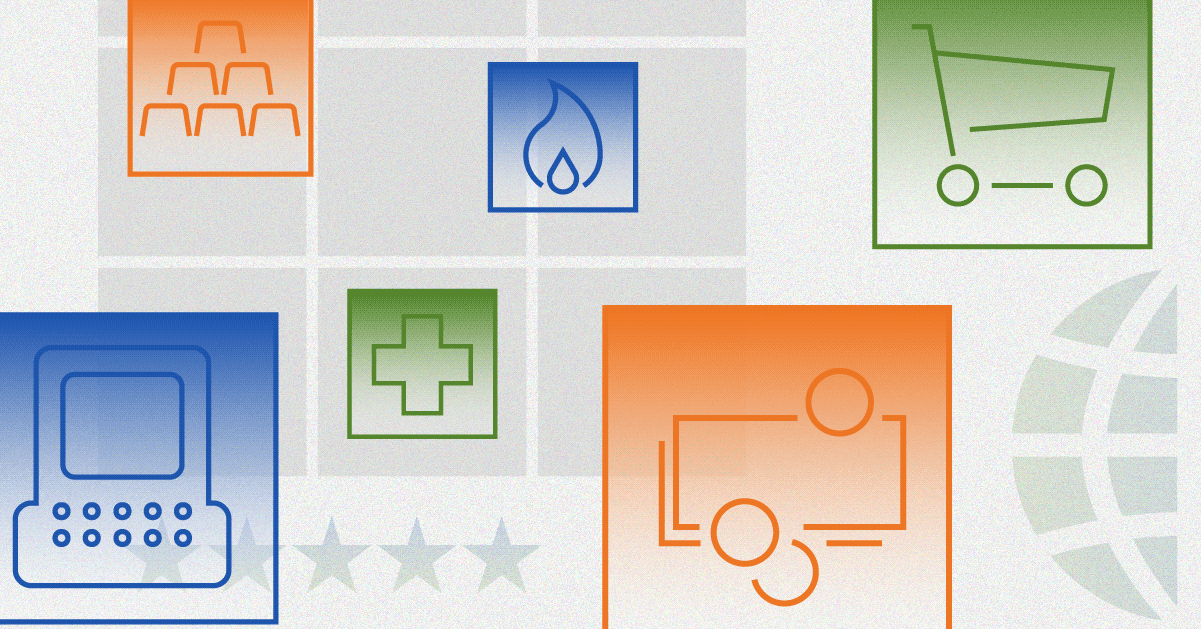Best Innovative Companies to Own: 2024 Edition
These companies are expected to benefit from disruptive technologies.

“Disruptive innovation” can conjure up images of flying cars, lightsabers, or a brave new world. But these technologies may not be as far off as they seem.
Tech companies are using disruptive technologies like artificial intelligence to analyze large, complex datasets. Research and development in the healthcare industry has created lifesaving drug therapies and treatments. And climate change is forcing energy and utilities companies to focus on renewable energy.
Investing in such disruptive innovation can be tricky, says Dave Sekera, Morningstar’s chief US market strategist.
“Because disruptive technology is such a broad, wide-reaching concept, it is difficult to identify companies that fall within the group,” he says.
The Morningstar Exponential Technologies Index holds about 200 stocks that Morningstar analysts expect to experience significant economic benefits from using or producing a new technology. The companies covered in this index touch on any combination of nine themes: Big Data and analytics, cloud computing, energy transition, financial technology innovation, healthcare innovation, hyperconnectivity, nanotechnology, next-generation transportation, and robotics. (Explore more about each theme in the index’s rule book.)
But which of these companies, representing these nine emerging themes, have the competitive advantages and management teams to thrive?
Here are the 16 companies in the Morningstar Exponential Technologies Index that also made our Best Companies to Own list for 2024.
| Company Name | Ticker | Sector | Industry |
|---|---|---|---|
| Accenture | ACN | Technology | Information Technology Services |
| Analog Devices | ADI | Technology | Semiconductors |
| Ansys | ANSS | Technology | Software—Application |
| Autodesk | ADSK | Technology | Software—Application |
| Bristol-Myers Squibb | BMY | Healthcare | Drug Manufacturers—General |
| Broadcom | AVGO | Technology | Semiconductors |
| Cisco Systems | CSCO | Technology | Communication Equipment |
| Keysight Technologies | KEYS | Technology | Scientific and Technical Instruments |
| Merck | MRK | Healthcare | Drug Manufacturers—General |
| Microchip Technology | MCHP | Technology | Semiconductors |
| Microsoft | MSFT | Technology | Software—Infrastructure |
| Roper Technologies | ROP | Technology | Software—Application |
| Texas Instruments | TXN | Technology | Semiconductors |
| Tradeweb Markets | TW | Financial Services | Capital Markets |
| Tyler Technologies | TYL | Technology | Software—Application |
| Waters | WAT | Healthcare | Diagnostics and Research |
Let’s take a closer look at what Morningstar thinks of Broadcom AVGO, which is exposed to four of the nine themes, tied for the most with Analog Devices ADI and Texas Instruments TXN among the companies on our Best Innovative Companies to Own list.
Broadcom
Themes: Big Data and analytics, nanotechnology, hyperconnectivity, and cloud computing.
Broadcom, which released its first-quarter earnings report on March 7, 2024, is the sixth-largest semiconductor company globally and has expanded into various software businesses, with over $30 billion in annual revenue. It sells 17 core semiconductor product lines across wireless, networking, broadband, storage, and industrial markets.
“Broadcom is an amalgamation of high-value chip and software businesses that on the whole are differentiated and moaty, in our view. Broadcom is a terrific aggregator of firms, big and small. Its ability to acquire and streamline generates strong profits and cash flow and fuels its robust dividend. We laud the firm for its execution and operating efficiency, which build upon its large organic investment and help it to outperform its end markets organically.
“In our view, Broadcom’s networking and wireless chip businesses are its strongest and contribute heavily to the firm’s wide economic moat. We anticipate it maintaining a technological lead in thin-film bulk acoustic resonator, or FBAR, filters, which it sells exclusively into Apple’s AAPL iPhone. We also expect it to maintain product leadership in merchant silicon for switching and routing applications and to defend its strong relationships with heavyweight equipment vendors Cisco Systems CSCO and Arista Networks ANET. Broadcom’s software businesses sell virtualization software, mainframe software, and cybersecurity software, and we see its offerings as highly competitive. Broadcom’s focus on strategic large software customers like financial institutions, governments, and large enterprises—where it is deeply embedded—elicits steep switching costs. We also see upselling opportunities with VMware under the firm’s belt.
“Going forward, we see Broadcom benefiting from moderate, steady growth from data center networking, Apple unit sales, and upselling for its software customers. We believe artificial intelligence will become a material organic driver to the networking business, as applications like large language models require advanced network switching, where Broadcom’s chips are best-of-breed. We expect acquisitions to still be on Broadcom’s radar but perhaps with larger, less frequent deals. After closing on VMware in 2023, we expect the firm to focus on deleveraging for a couple of years before tapping back into the acquisition market.”
—William Kerwin, Morningstar equity analyst
Find the full list of companies and read about our selection methodology.
Morningstar, Inc. licenses indexes to financial institutions as the tracking indexes for investable products, such as exchange-traded funds, sponsored by the financial institution. The license fee for such use is paid by the sponsoring financial institution based mainly on the total assets of the investable product. Please click here for a list of investable products that track or have tracked a Morningstar index. Morningstar, Inc. does not market, sell, or make any representations regarding the advisability of investing in any investable product that tracks a Morningstar index.
The author or authors do not own shares in any securities mentioned in this article. Find out about Morningstar’s editorial policies.

/s3.amazonaws.com/arc-authors/morningstar/96c6c90b-a081-4567-8cc7-ba1a8af090d1.jpg)
/d10o6nnig0wrdw.cloudfront.net/07-02-2024/t_6b25eabdd47c4e2bb51fbb816a658179_name_file_960x540_1600_v4_.jpg)
/cloudfront-us-east-1.images.arcpublishing.com/morningstar/YWKBIVULT5DGJEIGAJGBA6H5ZA.png)
/cloudfront-us-east-1.images.arcpublishing.com/morningstar/PJQ2TFVCOFACVODYK7FJ2Q3J2U.png)
:quality(80)/s3.amazonaws.com/arc-authors/morningstar/96c6c90b-a081-4567-8cc7-ba1a8af090d1.jpg)